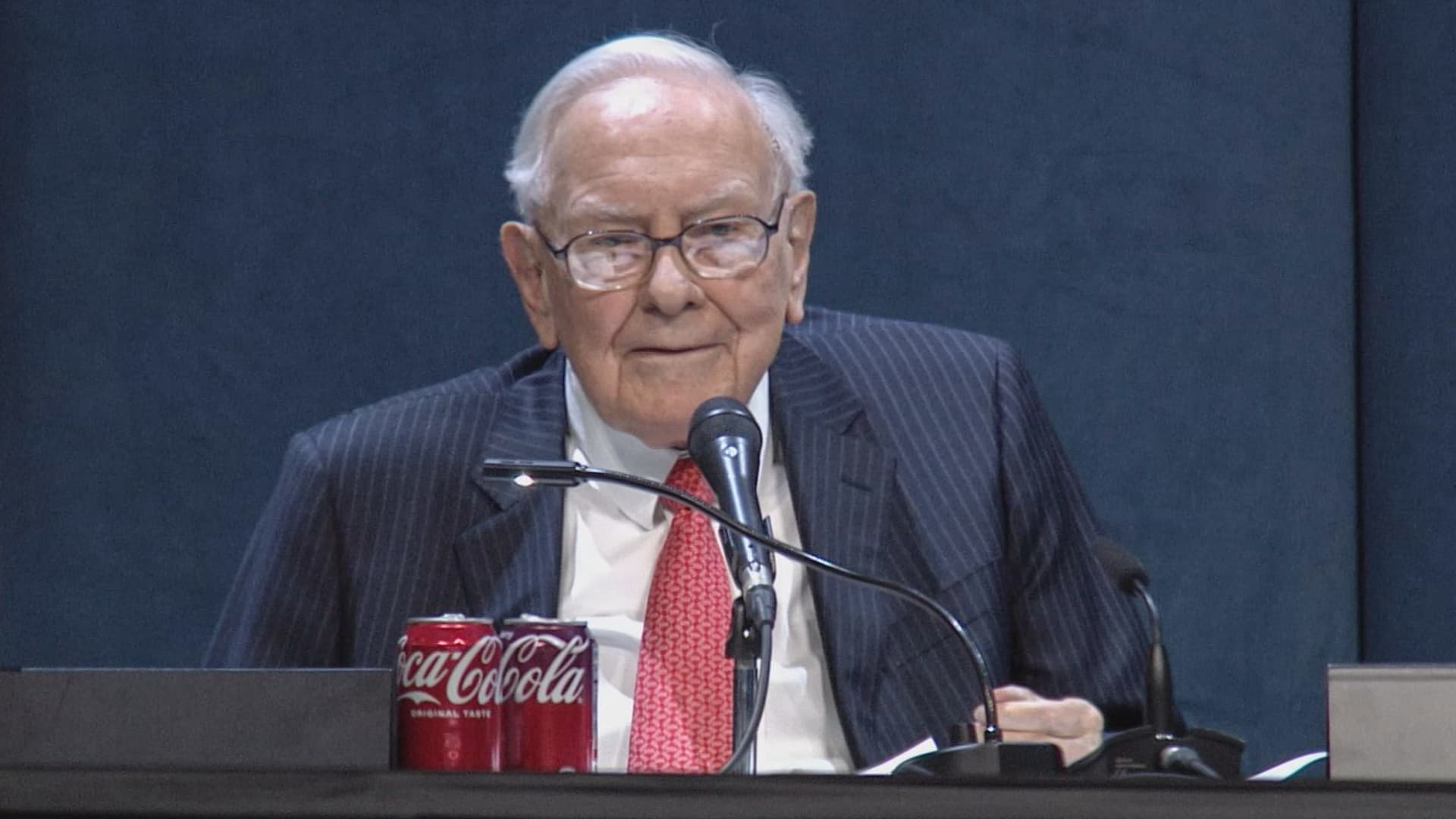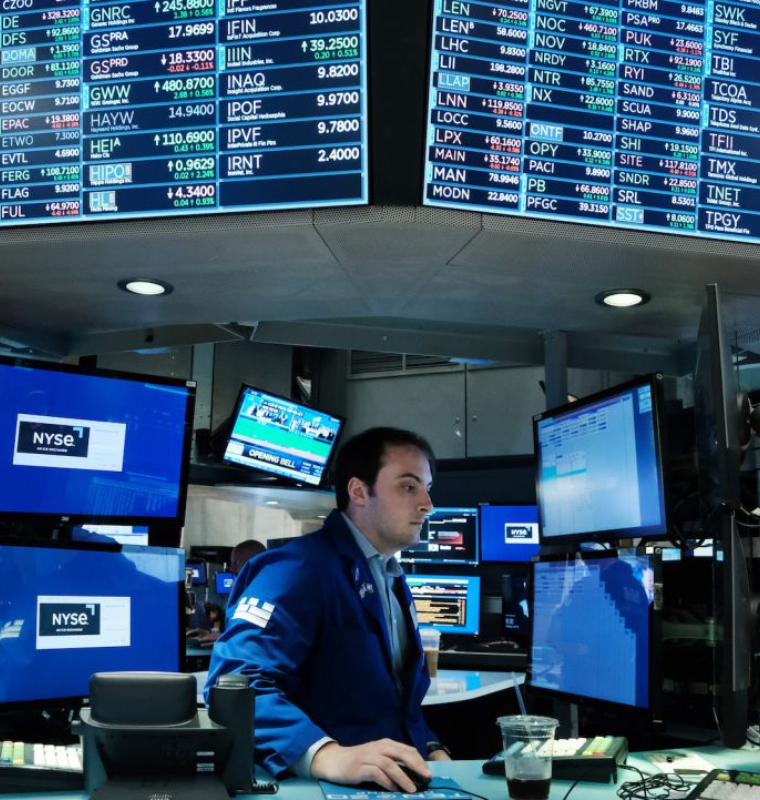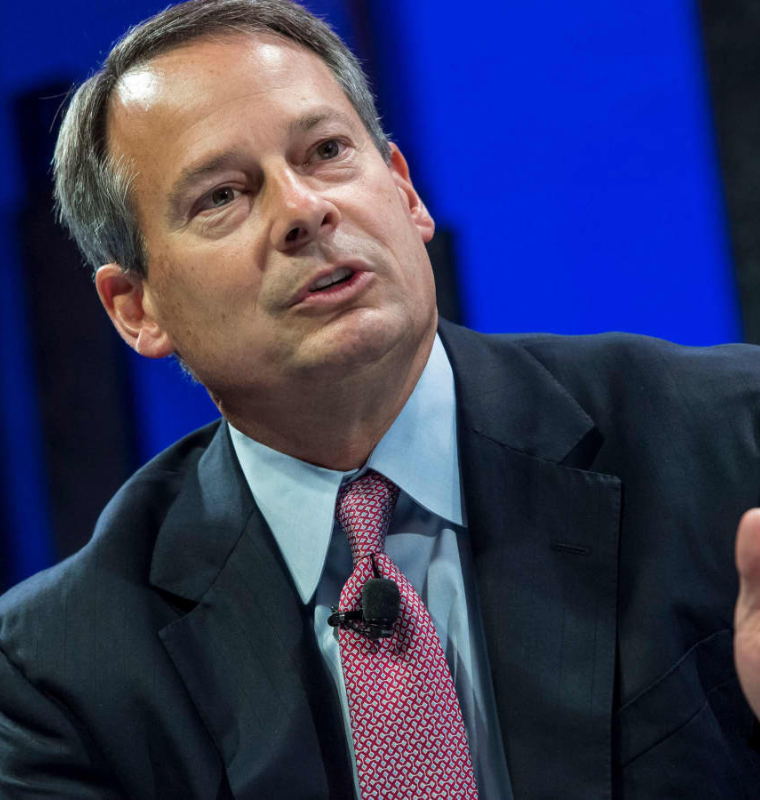Berkshire Hathaway Reports 4% Dip in Q2 Operating Earnings Amid Tariff Headwinds
Berkshire Hathaway Reports 4% Dip in Q2 Operating Earnings Amid Tariff Headwinds
By
David Goldfarb
Last updated:
August 4, 2025
First Published:
August 4, 2025

Photo: CNBC
A Softer Quarter: Berkshire’s Q2 Operating Profit Falls
Berkshire Hathaway, Warren Buffett’s iconic multinational conglomerate, reported a 4% year-over-year decline in operating earnings for the second quarter of 2025, totaling $11.16 billion, down from $11.63 billion a year prior. The dip was largely attributed to weaker performance in insurance underwriting, even as other core segments — railroads, energy, manufacturing, services, and retail — posted gains.
The second-quarter earnings release marks a critical moment for the Omaha-based firm as it navigates growing geopolitical uncertainty, shifting trade dynamics, and impending leadership changes at the top.
Tariff Tensions Loom Large Over Future Outlook
In its latest report, Berkshire once again flagged deep concerns over escalating U.S. tariffs and the broader implications of President Donald Trump’s evolving trade policies.
“The pace of changes in these events, including tensions from developing international trade policies and tariffs, accelerated through the first six months of 2025,” Berkshire warned in its investor filing.
The company emphasized that these developments may create widespread disruption across its operating businesses — from industrial manufacturing to consumer goods — and could also hit Berkshire’s $370 billion equity portfolio, potentially dragging future earnings further.
“It is reasonably possible there could be adverse consequences on most, if not all, of our operating businesses,” the company stated, noting heightened risks to its investment strategy and long-term planning.
Record Cash, Reduced Risk: Buffett’s Defensive Playbook
Despite the profit dip, Berkshire maintains a formidable cash reserve of $344.1 billion, just shy of its all-time high of $347 billion recorded in March 2025. The firm continued its defensive strategy by reducing exposure to equities for an 11th straight quarter, offloading $4.5 billion in stock holdings during the first half of the year.
Interestingly, Berkshire refrained from buying back any shares during the same period — a notable deviation from its recent strategy, especially as Berkshire’s own stock has dipped over 10% from its peak earlier this year.
Kraft Heinz Woes Add Pressure
Another sore spot in Berkshire’s Q2 update was a $3.8 billion impairment on its stake in Kraft Heinz, a long-struggling investment. The packaged food giant, in which Berkshire holds significant equity, has seen declining market performance amid rising costs, shifting consumer habits, and a pending spinoff of its grocery division.
Earlier this year, two Berkshire-appointed board members resigned from Kraft Heinz, signaling Berkshire’s growing discontent with the direction of the firm.
Buffett’s Last Chapter: A Historic Transition Begins
This earnings report is also the first since Warren Buffett, now 94 years old, announced his intention to step down as CEO by the end of 2025. His long-time successor, Greg Abel, who currently oversees Berkshire’s non-insurance businesses, will assume the top role.
Buffett, however, is not leaving entirely. He will remain as chairman of Berkshire’s board, a move designed to ensure strategic continuity and investor confidence during the leadership shift.
Looking Ahead: Uncertainty and Resilience
Berkshire’s Q2 earnings offer a snapshot of a company in transition — balancing economic headwinds, global trade tensions, and internal succession planning. With over 60 subsidiaries across dozens of sectors, including GEICO, BNSF Railway, and Berkshire Hathaway Energy, the conglomerate’s performance often serves as a barometer for the broader U.S. economy.
For now, Berkshire remains highly liquid, conservatively positioned, and watchful of external risks. But as the tariff landscape evolves, and with a new CEO set to take the reins, the company is entering a new era — one that may test the foundations built by its legendary leader.
Popular articles
Subscribe to unlock premium content
How AI is Disrupting the Legal Industry From Research to Rulings

How Egypt’s Economic Gamble on Mega Projects Backfired

The Netherlands’ Economic Balancing Act Amid Energy Transition

How AI is Disrupting the Legal Industry From Research to Rulings

How Egypt’s Economic Gamble on Mega Projects Backfired

How AI is Disrupting the Legal Industry From Research to Rulings









